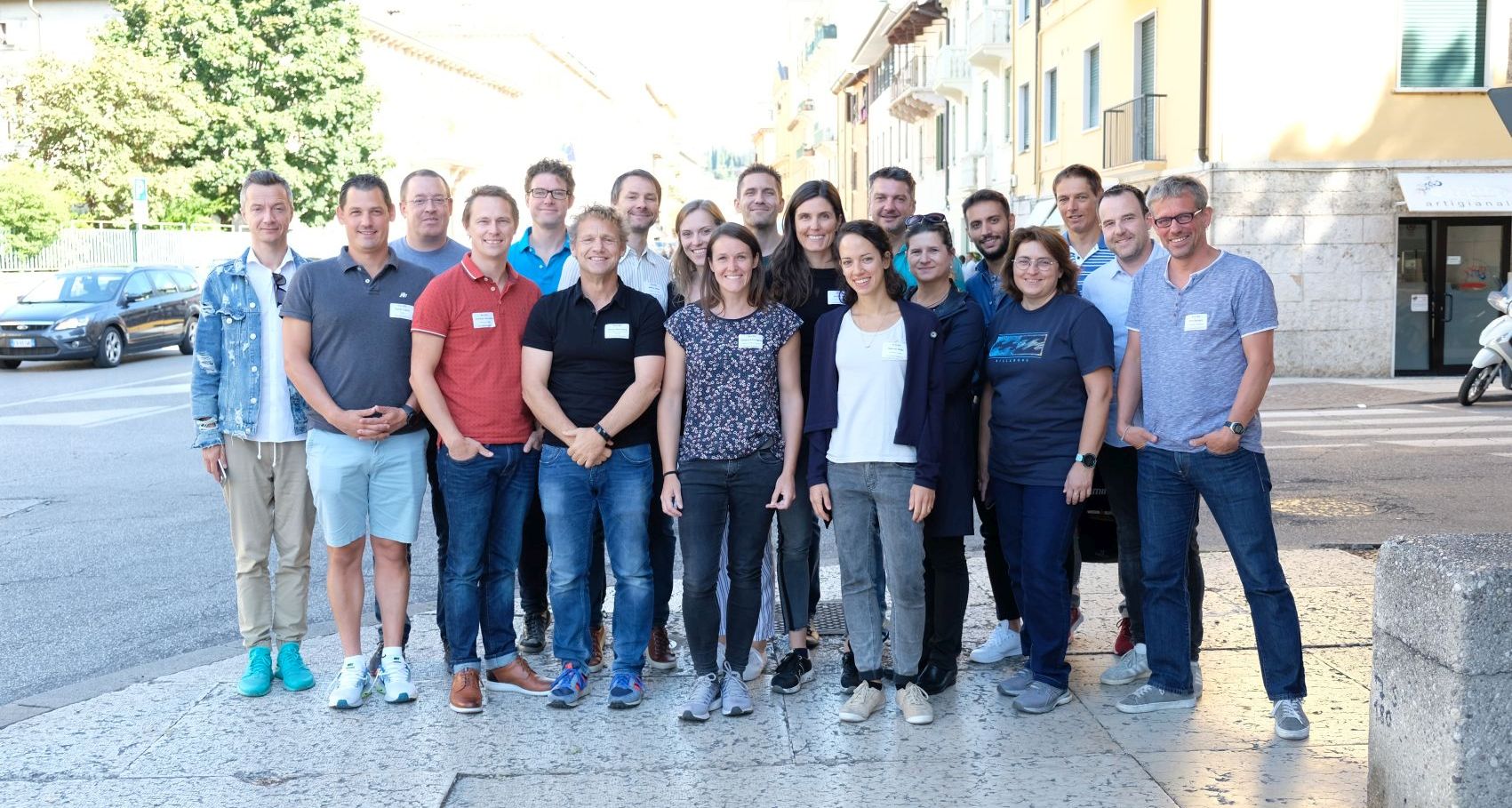Objectives

The overarching aim of the project is to promote an active and healthy lifestyle in children and to foster health enhancing physical activity (HEPA). This will be done by means of three objectives in three project phases with specific intellectual outputs (IO):
1. We will obtain scientific information and feedback on the status and distribution of basic motor competencies in children in the specific partner countries. All project partners will collect data to provide a cross-cultural comparison of differences and similarities. Moreover the data will provide fundamental information for the teachers on their classes in comparison to children in other classes and on special needs of their children.
2. We will develop a toolkit to promote and support basic motor competencies. On the basis of the assessments, all partners will work together to create a modularized concept which can be adapted to specific groups or individuals to provide tailored interventions to children.
3. We will disseminate the support concept within the EU. All project results will be published and made accessible to teacher associations, universities and colleges, teachers, the scientific community, and important stakeholders in the field of education and health promotion.
The new ERASMUS+ call for proposals now supports activities aiming at developing the European dimension in sport within the ERASMUS+ program. One of the central aims of the program is the promotion of European networks to provide opportunities for collaborative networks among stakeholders and institutions. These networks and collaborative partnerships aim at promoting participation in sport and physical activity and health-related physical activity (HEPA) to support the implementation of the EU Physical Activity Guidelines. Within this HEPA-policy, physical education has been identified as an important tool for promoting physical activity. Consequently, these guidelines (European Commission, 2009) discuss the central role of physical education because it is a mandatory subject in schools in most countries and could offer a healthy and appealing means of creating a lasting interest in physical activity and sport. Therefore, it is very important to evaluate the role physical education can play in promoting health behavior among children and youths.
A central aim of Physical Education (PE) is the promotion of basic motor competencies (BMC). Basic motor competencies are important determinants for explaining voluntary activities in sport and for promoting health-enhancing physical activity (HEPA) through increased participation in sports and exercise (for an overview see Herrmann et al., 2015). They constitute the essential requirements for taking part in the culture of sport and exercise and developing a physically active lifestyle. To promote the basic motor competencies effectively, the teachers have to know what their students are able to perform. For this reason the MOBAK test instruments have been developed (MOBAK-1 for 1st graders, Herrmann, Gerlach & Seelig, 2015, 2016; Scheuer, Bund & Herrmann, 2017; MOBAK-3 for 3rd graders, Herrmann & Seelig, 2017a; Scheuer, Bund Becker & Herrmann, 2017; MOBAK-5 for 5th graders, Herrmann & Seelig, 2017b; MOBAK-7 for 7th graders; Herrmann, Seiler, Pühse & Gerlach, 2017). They provide valid and reliable information about the level of students’ motor competence. The individual measurement of competencies allows teachers to identify groups with special needs and initiate special support to reduce inequalities. The proposed Collaborative Partnership “Basic Motor Competencies in Europe – Assessment and Promotion (BMC-EU)” consists of three progressive project phases:
(1) The assessment of the basic motor competencies in 13 partner countries
The evaluation of the basic motor competencies will take place in twelve European countries. Each project country will assess a sample of at least 300 students in primary school. Thereby, we pursue two central aims: The evaluation of the competence level of the countries (Monitoring) and of the competence level of the students (Screening). The results are reported to the project countries, to the schools as well as to the participating teachers.
(2) The development and implementation of a support-toolkit for teachers
Based on the results of the MOBAK-assessments, we develop together in collaboration with the partner countries a module-based support-toolkit with tailored interventions to promote the basic motor competencies of the students. This enables the physical education teachers to work with their students on their individual motor deficiencies evidence-bases and subsequently more efficiently.
(3) The implementation and dissemination of the project results.
For the implementation of the developed support-toolkit, the project partners will organize workshops. Results will be disseminated with national and international multiplier sport events.
Funding:
European Union, ERASMUS+ Program, January 2018-December 2019
-
Prof. Dr. Erin Gerlach & Dr. Jeffrey Sallen (University of Potsdam)
-
Dr. Christian Herrmann (University of Basel, Switzerland)
-
Dr. Claude Scheuer (University of Luxembourg)
- Prof. Dr. Günther Amesberger & Benjamin Niederkofler (University of Salzburg, Austria)
- Prof. Dr. Boris Jidovtseff (University of Liège, Belgium)
- Ass. Prof. Petr Vlcek & Ass. Prof. Jaroslav Vrbas (Masaryk University Brno, The Czech Republic)
- Prof. Dr. Christopher Heim & Fabienne Ennigkeit (Goethe-University of Frankfurt, Germany)
- Dr. Emmanouil Adamakis & Dr. Irene Kossyva (National and Kap. University of Athen, Greece)
- Ass. Prof. Dario Colella & Ass. Prof. Cristiana Simonetti (University of Foggia, Italy)
- Prof. Dr. Arūnas Emeljanovas & Dr. Brigita Miežienė (Lithuanian Sports University, Lithuania)
- Prof. Dr. Remo Mombarg & Dr. Berdien W. Moraal (Hanze University Groningen, The Netherlands)
- Prof. Dr. Marcos Onofre & Ass. Prof. Dr. Ana Quiterio (University of Lisboa, Portugal)
- Dr. Dana Masarykova & Ass. Prof. Dr. Jana Labudova (University of Trnava, Slovakia)
- Dr. Jana Vašíčková & Dr. Csányi Tamás (European Physical Education Association [EUPEA], Switzerland)
Third and last Transnational Project Meeting
 The last of the three transnational project meetings of the BMC-EU project took place from September 10th to 11th in of Verona, Italy. Apart from the presentation of the first results and analyses of the assessed data and the teacher training concept and toolkit, publication strategies and dissemination activities were discussed. Thanks to everyone for taking part in the meeting and in the project itself!
The last of the three transnational project meetings of the BMC-EU project took place from September 10th to 11th in of Verona, Italy. Apart from the presentation of the first results and analyses of the assessed data and the teacher training concept and toolkit, publication strategies and dissemination activities were discussed. Thanks to everyone for taking part in the meeting and in the project itself!

